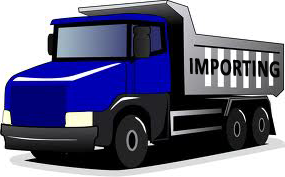
| IMPORT REGULATIONS, RESTRICTIONS and PROCEDURES | |||
| Regulations & Procedures |  |
||
All imports now fall into one of the following four categories: 1.Freely importable items; Most capital goods fall into this category. Items in this category do not require import licences and may be freely imported by any individual or entity. 2.Licensed imports; Certain items can be imported only with licences and only by actual users. The current "negative list" of items in this category includes several broad product groups that are classified as consumer goods; precious and semi-precious stones; products related to safety and security; seeds, plants and animals; some insecticides, pharmaceuticals and chemicals; some electronical items; several items reserved for production by the small-scale sector; and 17 miscellaneous or special-category items. In April 1993 the government ended licensing requirements for several agricultural items, including prawns, shrimp and poultry feed. 3.Canalised items; Items under this category can be imported only by specified public-sector agencies. These include petroleum products (to be imported only by the Indian Oil Corporation); nitrogenous phosphatic, potassic and complex chemical fertilizers (by the Minerals and Metals Trading Corporation) vitamin- A drugs (by the State Trading Corporation); oils and seeds (by the State Trading Corporation and Hindustan Vegetable Oils); and cereals (by the Food Corporation of India). 4.Prohibited items; Only three items-tallow fat, animal rennet and unprocessed ivory-are completely banned from importation. |
|||
![]](images/prohibited_sign_90_854.jpg) |
|||
Import approval is based on compliance with procedures whereby specific items may be imported by certain types of importers under certain types of licences. Importers are divided into three categories for the purpose of import licensing: |
|||
Inspection Customs inspectors have considerable authority and discretion in matters of inspection and valuation of imported items. Any imported goods or parts of any shipment may be examined and tested. Customs officials may require the importer to furnish information or produce any contract, broker's note insurance policy, catalogue or other document to help ascertain the rate of duty or tariff valuation. |
|||
Packing and labeling requirements India's ports are mostly located in tropical region, which means special care is needed when packing goods for shipment. Damage may be caused by damp, heat, exposure to sun and rain, insects, fungus and moulds. Therefore, waterproofing of shipments is necessary and use of cases lined with zinc or tin is recommended. |
|||